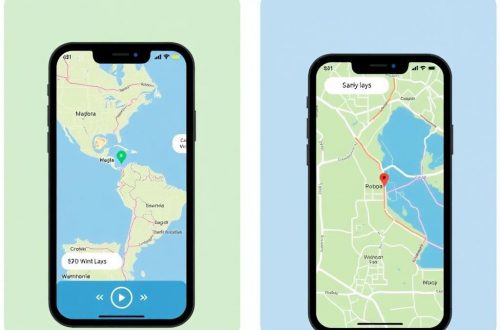
How to Travel with Only Cash: A Complete Guide to Hassle-Free Adventures
Traveling is an exciting adventure, but what happens when you decide to travel with only cash? Whether you prefer to avoid credit cards due to security reasons, lack of access, or simply want to experience a more traditional way of managing money abroad, this comprehensive guide will show you how to make the most out of your trip using only cash. It might sound daunting at first, but with a little preparation and the right mindset, traveling with only cash can be smooth, safe, and even enjoyable. Let’s dive into the world of cash-only travel, exploring everything from budgeting tips and safety precautions to practical advice on spending and exchanging money.
Why Choose to Travel with Only Cash?
In today’s digital world, most travelers automatically reach for their credit or debit cards. However, there are several reasons why someone might choose to travel with only cash. For example, some countries or destinations may have limited ATM access or merchants may not accept plastic payments. Others may want to avoid foreign transaction fees or protect themselves from potential fraud and identity theft. Additionally, traveling cash-only can make budgeting easier—you literally see how much you have left to spend.
Cash travel forces you to be more deliberate about your expenses, encouraging healthier financial habits and often leading to a richer, more immersive travel experience. By carrying just cash, you might find yourself more engaged with locals and traditional marketplaces, uncovering hidden gems that card-swiping tourists often overlook.
Pros and Cons of Traveling with Only Cash
It’s important to weigh the advantages and disadvantages of traveling with only cash before you set off on your journey. Here’s a quick overview:
| Pros | Cons |
|---|---|
|
|
Preparing for a Cash-Only Trip: What You Need to Know
Preparation is key when planning to travel with only cash. Unlike electronic payments where you can access funds anytime through ATMs or online banking, having only cash means you need to plan carefully to avoid running out of money or facing safety issues.
1. Research Your Destination’s Cash Culture
Start by investigating whether the places you’re visiting favor cash transactions. Some countries like Japan and Germany heavily rely on cash, whereas others like Sweden are almost cashless. Check if ATMs are widely available, if merchants accept cards, and how common scams related to cash are.
2. Estimate Your Budget
Calculate your anticipated expenses before you leave—including accommodation, food, transport, activities, and souvenirs. Leave a little buffer for emergencies or unexpected costs. When traveling with only cash, sticking to this budget is crucial.
3. Withdraw and Exchange Multiple Currencies If Needed
If your trip involves several countries that use different currencies, plan how much cash in each currency you’ll need ahead of time. Exchange rates can vary, so research where to get the best forex rates, either before you travel or at local exchange offices.
4. Carry Cash in Different Denominations
Carrying various denominations will make small purchases easier and prevent vendors from struggling to give change. Large bills are useful but could be inconvenient for minor transactions.
5. Use Money Belts and Secure Wallets
Since you’re carrying cash, it’s essential to protect it effectively. Invest in a money belt or hidden pouch to keep your cash safe from pickpockets. Split your cash among different places on your person and in your luggage to reduce risk.
How to Manage Spending While Traveling with Only Cash
Managing your funds carefully during your trip will keep you stress-free and able to enjoy your vacation fully. Here are practical tips to help control your cash flow:
1. Keep a Daily Spending Limit
Set a daily allowance based on your budget and stick to it. Withdraw the amount in cash for the day every morning and once it’s gone, avoid dipping into the rest unless it’s an emergency.
2. Use a Travel Wallet or Organizer
A travel wallet with transparent compartments for receipts and notes can help you keep track of your spending and save receipts for future reference.
3. Track Your Expenses
Even though you use cash, tracking expenses helps avoid overspending. Use a small notebook, mobile app, or expense tracker to jot down every transaction. This habit builds awareness and financial discipline.
4. Avoid Paying Too Much in Tips or Fees
In some countries, cash tips are expected, while in others they’re not. Research tipping customs so you can prepare cash amounts accordingly. Also, beware of fees for currency exchange or ATM withdrawals, which can eat into your travel funds.
Where and How to Keep Your Cash Safe When Traveling
Carrying large sums of cash requires vigilance. Here are some effective strategies to keep your money secure:
1. Divide Your Cash
Don’t keep all your money in one place. Split it up between your wallet, money belt, backpack, or hotel safe. That way, if one stash gets lost or stolen, you still have backup cash available.
2. Use a Money Belt or Neck Pouch
These practical accessories can be worn under clothing and are great for storing your most essential cash and important documents.
3. Be Discreet
Avoid flashing large amounts of cash in public. Be discreet when paying or handling money in crowded places.
4. Keep Emergency Contact Numbers
Write down phone numbers of your embassy, banks, and local emergency services in case you need help recovering lost or stolen funds.
5. Choose Your Accommodation Wisely
Opt for hotels or hostels with lockers or safes where you can securely store some cash and valuables when out sightseeing.
Exchanging Currency and Finding the Best Rates
One of the most important aspects of traveling with only cash is getting the best value for your money when exchanging currency. Here’s how to do it wisely:
| Option | Pros | Cons |
|---|---|---|
| Airport Currency Exchange | Convenient and available 24/7 | Often expensive with poor rates and high fees |
| Local Banks | Better rates than airports, safe and reliable | May have limited hours, need an ID |
| Official Currency Exchange Offices | Competitive rates, trained staff | Varying fees and occasional scams in tourist zones |
| ATMs | Convenient and secure way to withdraw local currency | Card fees apply, may have withdrawal limits |
| Hotels and Shops | Convenient, but some places exchange money | Usually not favorable rates, not recommended |
Tips for Getting the Best Exchange Rates
- Avoid exchanging money at airports if possible.
- Research current exchange rates before you exchange cash.
- Exchange small amounts at once rather than all your cash.
- Ask for no commission or hidden fees.
- Always count your money carefully before leaving the counter.
How to Handle Emergencies When Traveling with Only Cash
What if you suddenly run out of cash or lose your wallet? Here’s how you prepare and respond:
1. Carry Emergency Cash
Always stash some emergency cash separately from your daily spend to use only in case of urgent need.
2. Have a Backup Plan
If you must strictly travel with cash, consider having a trusted person back home to wire money via Western Union or MoneyGram in emergencies.
3. Use Traveler’s Checks as a Backup
Though less common nowadays, traveler’s checks remain a safe alternative to cash and can be replaced if lost or stolen.
4. Know Where to Find Help
Keep addresses and contact details of your country’s embassy or consulate handy in case you require assistance.
Best Destinations for Cash-Only Travelers
While many countries accept cards, some are particularly good choices for travelers who prefer to use only cash. Here are a few:
- Japan: Cash is king, especially in smaller shops and rural areas.
- Italy: Many restaurants and markets prefer cash payments.
- Mexico: Local vendors and street markets almost always want cash.
- Thailand: Street food vendors, taxis, and small hotels handle cash only.
- Germany: Although cards are accepted, cash is still widely used.
Common Mistakes to Avoid When Traveling with Only Cash
Avoid these pitfalls to make your cash-only travel safe and enjoyable:
- Carrying too much cash in one place.
- Failing to research currency exchange rates beforehand.
- Ignoring local tipping customs and payment preferences.
- Not budgeting or tracking your spending.
- Not securing emergency funds or backup plans.
Useful Travel Accessories for Cash-Only Travelers
Invest in these handy tools to make your cash-only travel easier and safer:
- Money Belt or Neck Pouch: Keep cash close to your body.
- Travel Wallet: Organize currency and receipts.
- RFID-blocking Wallet: Prevent electronic pickpocketing.
- Portable Safe or Lockbox: Secure cash in your accommodation.
- Budget Tracker App or Notebook: Stay on top of your money.
Conclusion
Traveling with only cash might seem old-fashioned in this digital age, but it offers unique benefits if done with care and preparation. From understanding your destination’s cash culture and planning your budget to securing your money and finding the best currency exchange rates, every step is crucial. Taking these tips into account allows cash-only travelers to navigate the world confidently, control their spending effectively, and enjoy authentic local experiences that might be missed when relying solely on cards. Remember, the key to successful cash travel is preparation, vigilance, and flexibility—armed with these principles, you can embark on your adventure with peace of mind and a wallet full of possibilities. Safe travels!




